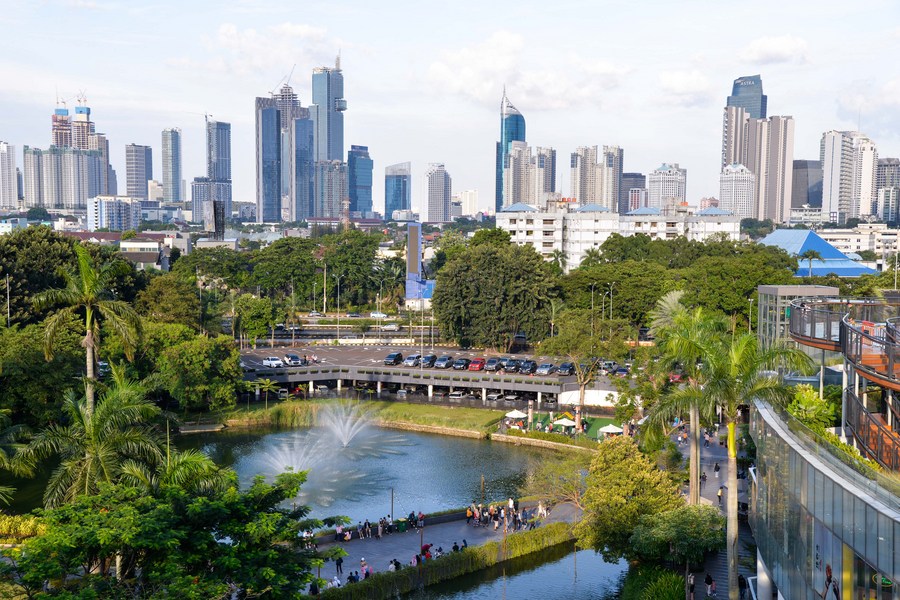In a visionary move that signifies Indonesia’s commitment to sustainable progress, the Capital City of Nusantara is set to become a shining example of green urban living in the heart of Southeast Asia. As the successor to Jakarta, this ambitious project is not only reshaping the country’s urban landscape but also redefining the concept of modern, eco-conscious cities.
Location and vision of the capital city of Nusantara
Nusantara’s strategic location on the eastern coast of Borneo, within the province of East Kalimantan, marks a significant departure from the historical urban centres of Java. The term “Nusantara,” derived from Old Javanese, translates to ‘the outer islands,’ a fitting reflection of the city’s role in embodying the diversity of Indonesia’s archipelago.
Nusantara’s vision extends beyond its physical boundaries. It aims to reduce developmental disparities across regions while harnessing the potential of Indonesia’s varied landscapes.
Green city Indonesia history and concept
The concept of green cities is not new to Indonesia. For years, the country has been actively exploring ways to achieve sustainable urban development while preserving its natural heritage. Nusantara represents the culmination of these efforts, integrating eco-conscious urban planning with modern amenities.
At its core, the green city concept encompasses renewable energy, efficient public transportation, green infrastructure, and waste management. Nusantara’s development focuses on creating an urban ecosystem that is both technologically advanced and environmentally responsible.
Development phases and ADB support
Nusantara’s development journey is characterised by a series of well-defined phases. The first phase, initiated in August 2022, concentrates on establishing fundamental infrastructure, including drinking water supply, electricity distribution, and waste management systems.
Notably, the Asian Development Bank (ADB) has recognised the significance of Nusantara’s vision and has lent its support to this monumental endeavour. The ADB’s involvement underscores the global importance of sustainable urbanisation and sets a precedent for international collaboration in addressing urban challenges.
Sustainability and green initiatives
At its heart, Nusantara is a sustainable city designed to minimise its ecological footprint while maximising its quality of life. The city’s commitment to renewable energy sources, coupled with an extensive public transportation network, reflects Indonesia’s determination to combat climate change and reduce urban congestion.
With a goal of achieving net-zero carbon emissions, Nusantara is poised to lead the way in environmentally conscious urban development. Moreover, the city’s emphasis on food production within its boundaries speaks to its self-sufficiency and resilience.
Inauguration and future prospects
A historic inauguration is scheduled for 17 August 2024, aligning with Indonesia’s Independence Day. This symbolic date underscores Nusantara’s role in shaping the nation’s future and embodying its aspirations.
While Nusantara’s completion is projected for 2045, the phased development approach ensures that each step is meticulously planned and executed. As the city rises, it is anticipated to redefine Indonesia’s urban identity and serve as a testament to the country’s commitment to progress, sustainability, and innovation.
READ ALSO: Unveiling the future of urban living with MARAFY in Jeddah
The Capital City of Nusantara emerges as Indonesia’s bold stride towards a greener and more sustainable future. With its strategic location, green initiatives, and collaboration with international partners like the ADB, Nusantara embodies the nation’s evolution into a modern, eco-conscious society.
As anticipation mounts for its inauguration in 2024, Nusantara stands as a beacon of hope and inspiration, encapsulating Indonesia’s pursuit of excellence in sustainable urban development. Through Nusantara, Indonesia is not just building a city; it’s creating a legacy of environmental responsibility and innovative urban living that will shape the nation for generations to come.

Leave a Reply